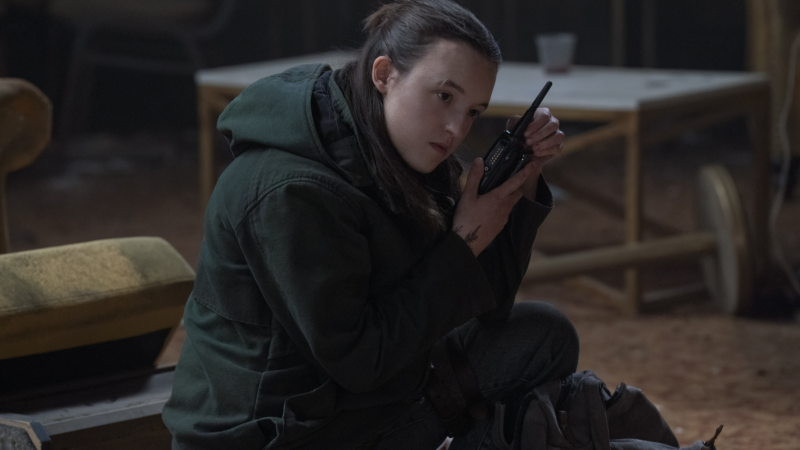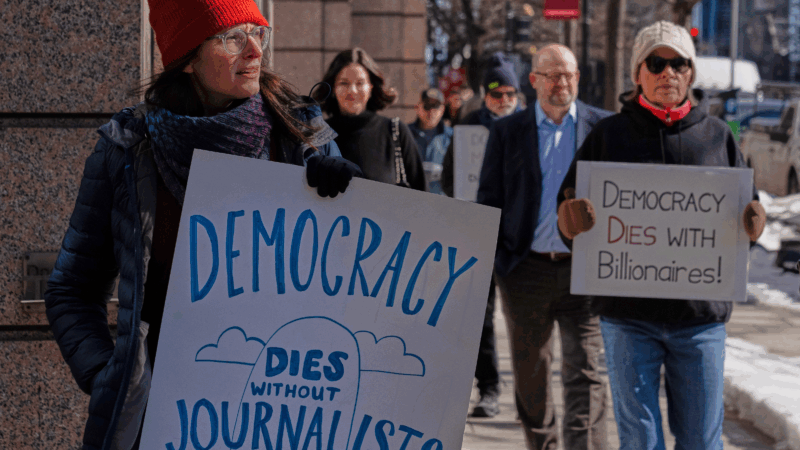‘The Last of Us’ finale ends after a season’s worth of table-setting
(Be warned: This review discusses details from the season finale episode of The Last of Us.)
As the dust settles on Sunday’s season finale for HBO’s hit zombie drama The Last of Us, it all feels less like a conclusion and more like the end of a very long introduction.
This year’s run of episodes attempted a delicate two-step, starting with a brutal ending for the series’ core relationship between Pedro Pascal’s smuggler Joel and his surrogate daughter, the rebellious teen Ellie, played by Bella Ramsey. By the end of Sunday’s season finale, we’re left with a new pair of characters as the story’s focus: Ellie and the woman who killed her surrogate dad, Kaitlyn Dever’s hardcore soldier, Abby.
That switch in protagonists happened courtesy of a huge narrative gamble: Taking out Joel in this season’s second episode. Joel and Ellie’s bond — forged in the first season, as they crossed an America filled with flesh-eating zombies created by a fungal infection – was the engine that turned The Last of Us into a beloved, game-changing TV hit.
But this second season was destined for a darker path.
Sunday’s season finale confirmed Joel’s death was a necessary, tone-setting element. He had lied to Ellie about killing a building full of people in order to save her, creating a wound in their relationship that festered until Abby, an expert soldier, showed up in the second season to avenge her father’s murder. Joel and Ellie had settled in a community at Jackson, Wyoming, trying to build a life together — but their relationship was fraying until right before his death. (That death likely freaked out fans unfamiliar with the video game, where Joel suffered a similar fate.)
Taking storytelling risks that don’t always pay off
If killing off the show’s most popular character in the second episode wasn’t enough, producers took even more risks this season. Joel’s murder and Ellie’s attempt to avenge it turned this year’s run of episodes into a dark study on the bitter wages of lies, revenge and violence. Ellie decided to track down Abby – even though the community in Jackson had voted against it – pulling other friends from the town into her quest.
Along the way, Ellie became a severely unlikeable character. Early on in the season, she’s a rebellious, impetuous kid, unable to appreciate Joel’s efforts to protect her and given to impulsive actions that endanger her and those around her. After Joel’s death, as she embarks on a reckless revenge mission, Ellie is willing to abandon friends and repeatedly risk her own life to reach Abby – with disastrous consequences.
In one of the final scenes in Sunday’s episode, Ellie has tracked down and killed all of Abby’s crew, but still winds up held at gunpoint by the soldier she was trying to murder. One of Ellie’s friends is dead, another wounded; Abby shouts “I let you live … and you wasted it!” The screen goes dark as you hear a gunshot. (Let’s be honest: given that they’ve already killed off one beloved character from the show, it’s tough to imagine Ellie meets her maker here.)

Still, this moment – and the episode’s final scene, which flashes back to Abby at the Seattle headquarters of the militia she belongs to – show that much of the second season’s narrative movement was about maneuvering these two characters together.
It’s a season-long bit of table setting that I absolutely cannot stand.
How many episodes do TV storytellers need in a season?
It’s one of my biggest pet peeves about TV shows in the modern age. Freed from the strict episode requirements of broadcast and cable TV, today’s small screen storytellers often struggle to figure how many episodes are necessary to contain their narratives.

On The Last of Us, that has led to a second season which only feels like half of one, spending too much time getting Ellie and Abby in the same space in Seattle, rather than helping viewers get to know a new character who will clearly be at the center of next season’s action.
To its credit, this is a show that doesn’t shy away from showing the karmic-like effects of violence on those who utilize it. By the end of Sunday’s season finale, Abby’s friends are dead, Ellie has killed many more people than she wanted to, and they’re both trapped in a cycle of revenge that has corroded their lives.
Even when Joel killed people for what he – and perhaps some viewers – thought were the right reasons, that violence left scars and racked up an emotional tab. When Abby and her crew showed up to take Joel out, there was a sense that fate was finally calling in a tab he’d racked up over a long life filled with hard choices and questionable actions.
Making the penultimate episode count
Like so many HBO shows, The Last of Us placed its most affecting episode just before the season-ender – the sixth installment, titled “The Price.” It’s a flashback episode giving us a much-needed return to Pascal as Joel, fleshing out his lifelong tendency to protect those he loves at all costs, and the long arc of his relationship with Ellie. The episode offers scenes from several of Ellie’s birthdays, from age 15 to 19, as she and Joel face the strains of family life in Jackson, Wyoming.

So much happens here. We see Joel’s protective love for Ellie curdle as she strives for independence and grows more suspicious of his lies from the first season. We see Joel attempt another lie, assuring Ellie he would allow Eugene, a member of the community in Jackson who was bitten by an infectious zombie, to sharefinal words with his wife — only to shoot him dead after she left. We see Joel eventually admit his earlier lie to Ellie, leading both to promise they will try to connect better – on the night before Joel is killed. But it all should have happened sooner, giving more room for scenes fleshing out Abby’s character.
(One aside: How cool was it that The Last of Us drafted an actor as amazing as Sopranos alum Joe Pantoliano to play Eugene? Especially given that Pantoliano – or Joey Pants, as he’s often called – is so unassuming that, as he told Variety, he initially thought Eugene was a character on This Is Us, a show that went off the air three years ago.)
I hate to join the litany of voices complaining about this season – and I do urge viewers not to confuse dislike for Ellie’s actions, which are often designed to be supremely annoying, with criticism of Ramsey, who I think was still very good this year.
But the minds behind the show allowed The Last of Us to fall into too many of the same pitfalls which have hobbled other post-apocalyptic dramas, with similar results. So this season felt more dreary, predictable and manipulative than the first.
Worse, they gave us too few reasons to believe that next season’s episodes – which will likely focus on more characters the TV audience doesn’t know – will be any better.
Pentagon says it’s cutting ties with ‘woke’ Harvard, ending military training
Amid an ongoing standoff between Harvard and the White House, the Defense Department said it plans to cut ties with the Ivy League — ending military training, fellowships and certificate programs.
‘Washington Post’ CEO resigns after going AWOL during massive job cuts
Washington Post chief executive and publisher Will Lewis has resigned just days after the newspaper announced massive layoffs.
In this Icelandic drama, a couple quietly drifts apart
Icelandic director Hlynur Pálmason weaves scenes of quiet domestic life against the backdrop of an arresting landscape in his newest film.
After the Fall: How Olympic figure skaters soar after stumbling on the ice
Olympic figure skating is often seems to take athletes to the very edge of perfection, but even the greatest stumble and fall. How do they pull themselves together again on the biggest world stage? Toughness, poise and practice.
They’re cured of leprosy. Why do they still live in leprosy colonies?
Leprosy is one of the least contagious diseases around — and perhaps one of the most misunderstood. The colonies are relics of a not-too-distant past when those diagnosed with leprosy were exiled.
This season, ‘The Pitt’ is about what doesn’t happen in one day
The first season of The Pitt was about acute problems. The second is about chronic ones.







